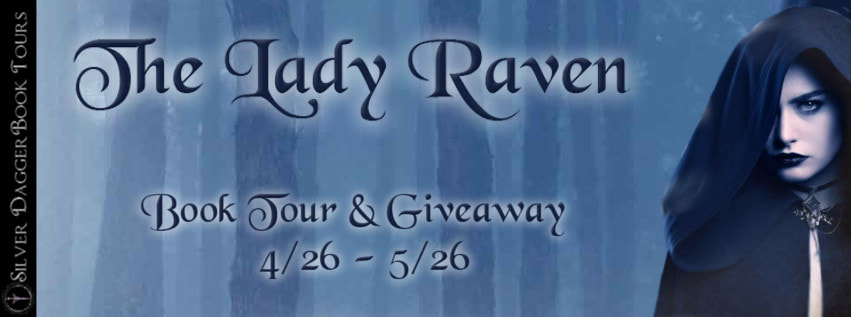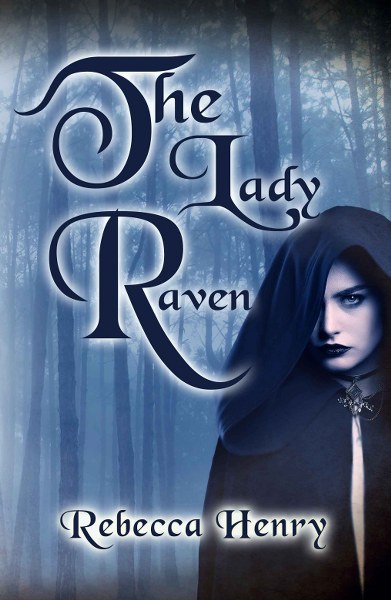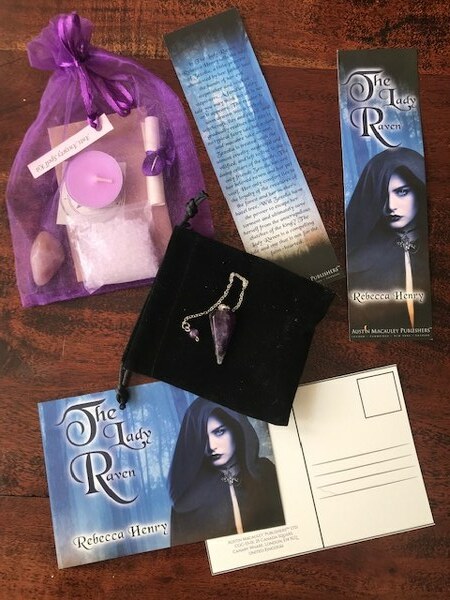NOT FOR YOUNG ADULTS, THE FAINT OF
HEART, OR THOSE WITH WEAK WILLS
Race through the bloodbath in this first volume of a horrific cyberpunk tahgmahr you can't afford to miss. What would you sacrifice to survive?
By 4042 CE,
the Hierophant and his Church have risen to political dominance with his
cannibalistic army of genetically modified humans: martyrs. In an era when
mankind's intergenerational cold wars against their long-lived predators seem
close to running hot, the Holy Family is poised on the verge of complete
planetary control. It will take a miracle to save humanity from extinction.
It will
also take a miracle to resurrect the wife of 331-year-old General Dominia di
Mephitoli, who defects during martyr year 1997 AL in search of Lazarus, the one
man rumored to bring life to the dead. With the Hierophant's Project Black Sun
looming over her head, she has little choice but to believe this Lazarus is
really all her new friends say he is--assuming he exists at all--and that these
companions of hers are really able to help her. From the foulmouthed Japanese
prostitute with a few secrets of her own to the outright sapient dog who seems
to judge every move, they don't inspire a lot of confidence, but the General
has to take the help she can get.
After all,
Dominia is no ordinary martyr. She is THE HIEROPHANT'S DAUGHTER, and her Father
won't let her switch sides without a fight. Not when she still has so much to
learn.
The
fast-paced first entry of an epic cyberpunk trilogy, THE HIEROPHANT'S DAUGHTER
is a horror/sci-fi adventure sure to disturb yet inspire adult readers of all
stripes. Be sure to keep an eye out for THE GENERAL'S BRIDE, available on
August 14th, 2019!
"The Hierophant's Daughter is a
gripping read from start to finish. I highly recommend it."-Tessa Dick,
author of Philip K. Dick: Remembering Firebright & Conversations With
Philip K. Dick
 The Disgraced Governess of the United Front was blind in her
right eye. Was that blood in the left, or was it damaged, too? The crash
ringing in her ears kept her from thinking straight. Of course her left eye
still worked: it worked well enough to prevent her from careening into the
trees through which she plunged. Yet, for the tinted flecks of reality
sometimes twinkling between crimson streaks, she could only imagine her total
blindness with existential horror. Would the protein heal the damage? How severely
was her left eye wounded? What about the one she knew to be blind—was it
salvageable? Ichigawa could check, if she ever made it to the shore.
The Disgraced Governess of the United Front was blind in her
right eye. Was that blood in the left, or was it damaged, too? The crash
ringing in her ears kept her from thinking straight. Of course her left eye
still worked: it worked well enough to prevent her from careening into the
trees through which she plunged. Yet, for the tinted flecks of reality
sometimes twinkling between crimson streaks, she could only imagine her total
blindness with existential horror. Would the protein heal the damage? How severely
was her left eye wounded? What about the one she knew to be blind—was it
salvageable? Ichigawa could check, if she ever made it to the shore.
I
The Flight of the Governess
 The Disgraced Governess of the United Front was blind in her
right eye. Was that blood in the left, or was it damaged, too? The crash
ringing in her ears kept her from thinking straight. Of course her left eye
still worked: it worked well enough to prevent her from careening into the
trees through which she plunged. Yet, for the tinted flecks of reality
sometimes twinkling between crimson streaks, she could only imagine her total
blindness with existential horror. Would the protein heal the damage? How severely
was her left eye wounded? What about the one she knew to be blind—was it
salvageable? Ichigawa could check, if she ever made it to the shore.
The Disgraced Governess of the United Front was blind in her
right eye. Was that blood in the left, or was it damaged, too? The crash
ringing in her ears kept her from thinking straight. Of course her left eye
still worked: it worked well enough to prevent her from careening into the
trees through which she plunged. Yet, for the tinted flecks of reality
sometimes twinkling between crimson streaks, she could only imagine her total
blindness with existential horror. Would the protein heal the damage? How severely
was her left eye wounded? What about the one she knew to be blind—was it
salvageable? Ichigawa could check, if she ever made it to the shore.
She couldn’t afford to think that way. It was a matter of
“when,” not of “if.” She would never succumb. Neither could car accident, nor
baying hounds, nor the Hierophant himself keep her from her goal. She had
fourteen miles to the ship that would whisk her across the Pacific and deliver
her to the relative safety of the Risen Sun. Then the Lazarene ceremony would
be less than a week away. Cassandra’s diamond beat against her heart to pump it
into double time, and with each double beat, she thought of her wife (smiling,
laughing, weeping when she thought herself alone) and ran faster. A lucky thing
the Governess wasn’t human! Though, had she remained human, she’d have died
three centuries ago in some ghetto if she’d lived past twenty without becoming
supper. Might have been the easier fate, or so she lamented each time her mind
replayed the crash of the passenger-laden tanque at fifth gear against
the side of their small car. How much she might have avoided!
Of course—then she never would have known Cassandra. That
made all this a reasonable trade. Cold rain softened the black earth to the
greedy consistency of clay, but her body served where her eyes failed. The
darkness was normally no trouble, but now she squinted while she ran and, under
sway of a dangerous adrenaline high, was side-swiped by more than one twisting
branch. The old road that was her immediate goal, Highway 128, would lead her
to the coast of her favorite Jurisdiction, but she now had to rediscover that
golden path after the crash’s diversion. In an effort to evade her pursuers,
she had torn into a pear orchard without thought of their canine companions.
Not that the soldiers of the Americas kept companions like Europa’s nobles.
These dogs were tools. Well-honed, organic death machines with a cultivated
taste for living flesh, whether martyr or human. The dogs understood something
that most had forgotten: the difference between the two was untenable. Martyrs
could tell themselves they were superior for an eternity, but it wouldn’t
change the fact that the so-called master race and the humans they consumed
were the same species.
That was not why Cassandra had died, but it hadn’t
contributed to their marital bliss. And now, knowing what she did of the
Hierophant’s intentions—thinking, always, what Cassandra would have said—the
Governess pretended she was driven by that ghost, and not by her own hopelessness.
Without the self-delusion, she was a victim to a great many ugly thoughts,
foremost among them being: Was the fear of life after her wife’s death worth
such disgrace? A death sentence? Few appreciated what little difference there
was between human and martyr, and fewer cared, because caring was fatal. But
she was a part of the Holy Family. Shouldn’t that have been all that mattered?
Stunning how, after three centuries, she deserved to be treated no better than
a human. Then again, there was nothing quite like resignation from one’s post
to fall in her Father’s estimate. Partly, he was upset by her poor timing—she
did stand him up at some stupid press event, but only because she hoped it
would keep everybody occupied while she got away. In that moment, she couldn’t
even remember what it was. Dedicating a bridge? Probably. Her poor head, what
did the nature of the event matter when she was close to death?
That lapse in social graces was not the reason for this
hunt. He understood that more lay behind her resignation than a keening for
country life. Even before he called her while she and the others took the tanque
to the coast, he must have known. Just like he must have known the crash
was seconds from happening while he chatted away, and that the humans in her
company, already nervous to be within a foot of the fleeing Governess, were
doomed.
Of the many people remaining on Earth, those lumped into the
group of “human” were at constant risk of death, mutilation, or—far
worse—unwilling martyrdom. This meant those humans lucky enough to avoid
city-living segregation went to great lengths to keep their private properties
secure. Not only houses but stables. The Disgraced Governess found this to be
true of the stables into which she might have stumbled and electrocuted herself
were it not for the bug zaps of rain against the threshold’s surface. Her mind
made an instinctive turn toward prayer for the friendliness of the humans in
the nearby farmhouse—an operation she was quick to abort. In those seconds (minutes?)
since the crash, she’d succeeded in reconstructing the tinted windows of the tanque
and a glimpse of silver ram’s horns: the Lamb lurked close enough to hear
her like she spoke into his ear. It was too much to ask that he be on her side
tonight.
Granted, the dogs of the Lamb were far closer, and far more
decisive about where their loyalties stood. One hound sank its teeth into her
ankle, and she, crying out, kicked the beast into its closest partner with a
crunch. Slower dogs snarled outrage in the distance while the Disgraced
Governess ran to the farmhouse caught in her left periphery. The prudent
owners, to her frustration, shuttered their windows at night. Nevertheless, she
smashed her fist against the one part of the house that protruded: the doorbell
required by the Hierophant’s “fair play” dictatum allowing the use of
electronic barriers. As the humans inside stumbled out of bed in response to
her buzzing, the Disgraced Governess unholstered her antique revolver and
unloaded two rounds into the recovered canines before they were upon her. The
discharge wasn’t a tip-off she wanted to give to the Lamb and her other
pursuers, but it hastened the response of the sleeping farmers as the intercom
crackled to life.
“Who is it?” A woman’s voice, quivering with an edge of
panic.
“My name is Dominia di Mephitoli: I’m the former Governess
of the United Front, and I need to borrow a horse. Please. Don’t let me in.
Just drop the threshold on your stables.”
“The Governess? I’m sorry, I don’t understand. The Dominia
di Mephitoli, really? The martyr?”
“Yes, yes, please. I need a horse now.” Another dog careened
around the corner and leapt over the bodies of his comrades with such grace
that she wasted her third round in the corpses. Two more put it down as she
shouted into the receiver. “I can’t transfer you any credits because they’ve
frozen my Halcyon account, but I’ll leave you twenty pieces of silver if you
drop the threshold and loan me a horse. You can reclaim it at the docks off Bay
Street, in the township of Sienna. Please! He’ll kill me.”
“And he’ll be sure to kill us for helping you.”
“Tell him I threatened you. Tell him I tricked you!
Anything. Just help me get away!”
“He’ll never believe what we say. He’ll kill me, my husband,
our children. We can’t.”
“Oh, please. An act of mercy for a dying woman. Please, help
me leave. I can give you the name of a man in San Valentino who can shelter you
and give you passage abroad.”
“There’s no time to go so far south. Not as long as it takes
to get across the city.”
It had been ten seconds since she’d heard the last dog. That
worried her. With her revolver at the ready, she scanned the area for something
more than the quivering roulette blotches swelling in her right eye. Nothing
but the dead animals. “He’ll kill you either way. For talking to me, and not
keeping me occupied until his arrival. For knowing that there’s disarray in his
perfect land. He’ll find a reason, even if it only makes sense to him.”
The steady beat of rain pattered out a passive answer. On
the verge of giving up, Dominia stepped back to ready herself for a fight—and
the house’s threshold dropped with an electric pop. The absent mauve shimmer
left the façade bare. How rare to see a country place without its barrier! A
strange thing. Stranger for the front door to open; she’d only expected them to
do away with the threshold on the stables.
But, rather than the housewife she’d anticipated, there
stood the Hierophant. Several bleak notions clicked into place.
One immaculate gray brow arched. “Now, Dominia, that’s
hardly fair. Knowledge of your disgrace isn’t why I’ll kill them. The whole
world will know of it tomorrow morning. You embarrassed me by sending your
resignation, rather than making the appearance I asked of you, so it is only
fair I embarrass you by rejecting your resignation and firing you publicly. No,
my dear. I will kill these fine people to upset you. In fact, Mr. McLintock is
already dead in the attic. A mite too brave. Of course”—he winked, and
whispered in conspiracy—“don’t tell them that.”
“How did you know I’d come here?”
“Such an odd spurt of rain tonight. Of all your
Jurisdictions, this one is usually so dry this time of year! Won’t you come in
for tea? Mrs. McLintock brews a fine pot. But put that gun away. You’re humiliating
yourself. And me.”
Dominia, with some delay for her trembling, slid the gun
into its holster, then entered a building that gleamed with history. Such a
nice ranch house, with generations of pictures on walls that had themselves
been carefully preserved, or identically restored. People were meticulous with
homes like these. They lived. This one had been around a long time. Two
millennia, based on the style. Centuries of love and care, about to be
disrupted by a terrible bath of blood.
A friendlier dog than the ones outside greeted her at the
door, and the Hierophant bent to ruffle its floppy black ears. “A new friend
for the Lamb, perhaps, after you’ve cruelly killed three.”
“As poor a guard dog as he’s proved tonight, I don’t think
he’s the hunting sort.”
“Of course not. But we can always use more pets, can’t we?”
Wasn’t that the use of courtiers? She kept the joke to
herself. In an intimate, doily-filled drawing room, the Hierophant drew an
antique oak chair from the matching table and patted its scroll-carved back.
Dominia lowered into the place set in anticipation of her coming, wherefrom
she, scowling, studied him with she had already begun to consider her “good
eye.” The Hierophant, that eerie smile never leaving his pale lips, poured the
tea as he spoke.
“I remember when you were first martyred. You’d pout at
every supper, refuse to eat your food. I ought to have seen this night
arriving.”
“You did. You only pretended not to.”
“True! I always like to think I’ve some small say in
destiny. That if I ignore inevitability hard enough, it shall not rear its
head. But that never seems to be the case. These tedious things all end the
same.”
“This is drugged, I suppose.”
“It’s as if you don’t know me. How passé! No, my dear, I
only wish to speak to you and—Carol?”
Now the berobed, befuddled woman Dominia had expected made
her belated appearance. The Hierophant flashed her a smile stupid men cherished
and wiser men feared. “I don’t suppose you’ve a few spare pastries?”
“Some donuts for the children,” she mumbled automatically,
paling to have reminded herself, and the Hierophant, of their existence.
“Well, far be it from me to take food from the mouths of
babes. Why not bring them to share with us! Rouse the tykes from bed. I love to
see sweet, sleepy faces.”
“Please,” said the woman.
“No,” said Dominia.
The Hierophant’s black eyes danced between them. “I suppose
it is rather late for sugar, but you ladies are taking this much too seriously.
Carol, dear: go get the children. Or would you rather I fetch them?”
That suggestion chased her right up the stairs. The Holy
Father smiled as he plucked with huge hands a delicate teacup adorned with
painted roses; the gesture resembled that of a better father, playing tea with
his daughter’s tiny plastic saucers. “What a hostess. Up at two in the morning
with such moxie!”
“Why are you doing this?”
“Don’t you wish for a bit of civility amid all the violence
and terror? You looked like you could use a sit-down. Please, drink the tea.”
With a sniff that detected nothing but jasmine, she did, and
broke up the heretofore uninterrupted taste of blood to which she had adjusted.
Meanwhile, the flow of blood had stopped above her left eye, and a little shard
of glass was pushed out by the work of the sacred protein. That good protein,
her one friend. While she blinked the shard away in relief to know she was not
fully blind, she finished her tea and tried to calculate a way out of the house
before he got his hands on her.
No chance of that. A bonny pair of children soon tumbled down
the stairs, wired from their mother’s angst and promises of midnight donuts.
The Hierophant laughed in delight and clapped his hands, and the girl gasped in
wonder.
“Isn’t that the Holo Man?”
“It’s the Hierophant, Betty.” Exclaiming this, the boy froze
at the entrance of the room. Their mother whisked past, her anxious stare
trained on the Hierophant to whom the girl, brash with innocence, giddily
darted. Wiser with his eight years of dread, the boy licked his lips. “Has our
family done something wrong?”
“No, no. There will be donuts.” Pleased, the Hierophant
turned his attention to the girl, whose golden locks fell in disarray while he
whisked her up to bounce upon his knee. “I do love children,” sang the martyr,
far taller in the presence of the doll-like girl. Dominia gripped the table to
remind herself of her own size. “They take joy in such simple things. Their
courageous connection to the moment, that joie de vivre, has yet to be
deadened by social laws.”
The Governess couldn’t hold her tongue. “By your laws.”
“God’s laws. There are men, and there are martyrs. That is a
fact about which nothing can be done—no more than anything can be done about
the martyr’s inherent superiority. Thank you, Carol.” He turned his smile to
the tense woman who deposited plates of donuts before her unwelcome guests. On
eye contact, her pupils shrank to pinpoints. With a lingering stare for her
daughter, she hustled her son to the corner of the sofa and sat with him, one
iron hand clamped to the base of his neck.
“You always had a problem accepting that,” resumed the
Hierophant, breaking up the powdered pastry and offering half to the
bright-eyed girl. “Our superiority, I mean. Oh, you tucked your ideals away
with enough years’ worth of tutors, and enough time spent in the proper
culture, but I admit that I saw your regression the instant you took up
governance of the Front. Even after your sordid military career, your heart is
too soft for these more difficult matters. Will you continue to let Cassandra’s
unraveling destroy your future?”
“She didn’t ‘unravel.’ You drove her insane. She died
because of you. She—”
“Is this a topic for young ears? Please, dear. I must
apologize, Carol: despite my best efforts, my duckling never grew into a swan
as did her younger sister. There are always kinks worked out with older models.
Your name was ‘Betty,’ wasn’t it, princess?” At the oblivious girl’s happy nod
from behind her powder-coated fingers, the Hierophant offered her the other
half of his donut. “Well, Betty, you remind me an awful lot of my Lavinia. Do
you know who Lavinia is?”
At the name, the girl’s eyes widened, and she preened as any
small child would when compared to royalty so high. “She’s the real princess!
The best princess in the whole world, and the prettiest!”
“She certainly is. What do you think of Lavinia, darling
girl?”
“That she’s pretty,” emphasized the child again. How old was
she? Three, going on four? How old had Dominia been when the Hierophant
martyred her? Seven, or eight. He preferred that humans did the bulk of early
raising; bed-wetting increased the transition’s already unbearable difficulty.
She had to lean on her notion of his preference and hope that he had only
bluffed about his killing mood. There was no moving faster than him. No wasting
a bullet on him. At the slightest provocation, or none, he would snap the
girl’s neck and be on the mother and her son two seconds later. Dominia already
saw it happening and willed the images away as the child continued rattling off
that Lavinia, “Gets to live in a castle with a lot of horses and doggies and
all her friends. And she sings pretty, too.”
“Ah, doesn’t she.” The Hierophant smiled with fondness, then
pointed across the table at Dominia. “Do you know who that is?” he asked in a
half whisper. The girl, who had been glad to have the donuts but reluctant to
look at the bloodied Governess, now followed his finger and shook her head.
“What’s wrong with her eye?”
“I know who she is,” called the boy, to his mother’s visible
anguish. “She’s the Governess of the whole United Front, all North America.”
“‘Was’ the Governess, lad. Come here.” The Hierophant waved
a regal hand, and over came the boy, in danger far graver than his sister by
virtue of age. As Dominia’s breath stilled, the Holy Father reached across the
table to pluck up her donut in offering to the boy. “What’s your name?”
“Murph McLintock.” Donut acquired, the breathless child
edged toward the Governess as much as manners allowed.
“Do you see the Disgraced Governess’s eye, Murphy?” asked
the Hierophant. The boy turned to regard the (slightly) less notoriously evil
martyr.
“It’s all full of blood.”
“Let’s play a game. What do you reckon the odds that the
Disgraced Governess’s eye will stay intact ’til morning?”
The grim boy regarded the jelly extruding from the edge of
the donut. “What happened to her?”
“Dominia? Would you tell Murphy what happened?”
With a resentful glance at her Father, Dominia turned her
good eye toward the boy. “I was in a car accident. On the way to the shore.”
Her Father pressed. “To do what?”
“To…leave.”
“To run away,” corrected the Hierophant, his solemn
expression still aimed at Murph. “To abandon her post and deliver information
to the enemy. This woman is a criminal.”
Face writ with anxiety, the boy stepped back from the table.
The Hierophant’s smile never wavered.
“Have you ever met a martyr before, lad?”
The boy shook his head.
“What do you think? Is a martyr different from a human?”
“Dad says—”
“I don’t care what ‘Dad’ says. I want to know what Murphy
says.”
Between the Hierophant and the Governess, the boy swallowed
like his saliva had been replaced by sand.
“Yes. Martyrs are different from humans.”
“And how are we different?”
“Well, humans are born, and then we die. But martyrs are
born human, and then they die, and then they’re born again as martyrs.”
“And what happens when they’re born again? What makes a
martyr superior to a human?”
The boy’s face tightened, and Dominia thought, that’s right,
we’re not superior, there’s nothing that makes a martyr superior, nothing that
merits his treatment of humans, and you don’t have to say it; but, of course,
she didn’t vocalize this thought. Instead, she sat frozen as she’d been in the
instant of Cassandra’s death. She was back in that dark and bloody room until
Murph said, “Well, they’re fast, and strong. Some are geniuses—magical, almost,
like you. They don’t have to worry about anything, even if they get into an accident
and need a wheelchair like my aunt Hilda. ’Cause they get better so fast. My
aunt doesn’t live here,” added the child, chin raised in a defensive posture.
The Hierophant chuckled to himself.
“And what does a martyr need, my boy, to sustain that second
life?”
“Human flesh.” The boy spared a reluctant glance for his
sister in the Hierophant’s lap. “Or blood.”
“That’s right: although, flesh is better. And how is a
martyr made?”
“By eating,” whispered Murphy.
“Yes, dear boy. By eating the flesh or drinking the blood of
a martyr. And other means, of course, not suited for young ears.” The
Hierophant winked at pale Carol, who rested her elbow upon the back of the
couch and cradled her forehead in that worried hand. “What other things are
passed that way, lad? Outside of martyrdom?”
“Well, sicknesses. But it’s a sickness, isn’t it? Martyrdom?
It’s a kind of sickness, and that’s why all the rich people left in—when was
it, Mom? I saw on the history program one day, but I don’t remember. After Mars
was good enough for people to start living there.”
“1744 Anno Lucis,” his mother answered from behind closed
eyes. “My ancestor wasn’t quite seventeen, too young to go with her fiancé, so
they forged her documents and pretended she was eighteen. They had to leave
their baby behind, and that’s why we’re still here.”
“To think, Carol, you begged before to know why I was here—
coming as you do from a family of criminals! Martyrdom is not a sickness, my
boy. It is the cure to sickness—all sickness. But it is more than mere earthly
cure. It is a mission. A privilege. It is an honor in which one becomes part of
something grander than oneself. Grander than one might ever comprehend. One
becomes a gift to the world. To reject that, and see that as anything but a
privilege…do you suppose that is right, Murphy? Do you think it is fair that
a martyr should reject the role chosen for them? Should they deny the
importance of their task, and the importance of the tasks being done by their
brethren?”
Caught in a trap by the sensibilities of his age, the
reluctant boy shook his head. The Hierophant’s hands spread in Dominia’s
direction. “There you are, my girl! I have no choice.”
He snatched her right eye from her skull in a motion so
quick Dominia could only scream in tandem with the children before propelling
from the table to writhe upon the floor. Blood oozed through her fingers while
her legs kicked to fend off the pain; meanwhile, the girl’s panicked feet
carried her cries to her mother. With his most feline expression of amusement,
the Hierophant dipped the much-abused sac into his tea.
“We never did place a proper bet, lad, so I’ll count that as
a ‘win’ on my part, if you don’t mind. Do you like your life the way it is?”
“No!” Dominia arched her back against the pain and gnashed
her teeth, unable to lift her hand away to view the unfolding scene. “Don’t do
it! Don’t do it, you bastard!”
“I will deal with you at an opportune juncture,” said the
Hierophant. “Come here, Murphy. Answer the Holy Father.”
Again, obligated by well-instilled values, the boy neared
with but a flicker of attention for the crying mother who cradled her second
child and prayed for her first. Amid all her screaming pain, Dominia thought to
herself how praying would only make the situation worse, but she had no
strength to say it as her free hand fumbled around her belt.
“I love my parents.”
“And your sister?”
With more reluctance: “Yes.”
As the boy answered, the Hierophant lifted the lid of the
sugar bowl and scooped a few generous teaspoons into the cup. “What if I told
you that you could keep your family safe from me forever? All you’d need do is
trade your life for them.”
“No,” cried Dominia again, a word useless to him.
The wise child asked, “You don’t mean really die, do you?”
The Hierophant smiled in that mockery of patriarchal
tenderness which was his trademark. “No, I don’t. It has been a long time since
I’ve been a new grandparent.”
“Murphy, don’t.” His mother made one futile plea, but the
boy looked in her eyes and saw her fear, saw her neck wet with the tears of his
sister. Strangled with grief, Murph turned back to the Hierophant.
“I’d do it for them.”
“You’ll come with me and grow into a man who will never age
beyond his apex. Never sicken. Never die. You’ll have wealth beyond measure,
more friends than you could count; I’ll make you a duke, or an earl. Not so bad
a trade for your old human life? For your family’s lives?”
Mute, the boy shook his head. The smiling Hierophant offered
the cup of tea and blood. That nauseating admixture stood poised millimeters
from the boy’s lips when Dominia managed to lift the gun and, half blind, pull
the trigger.
She would wish for the rest of her life that she had gotten
the shot off sooner, and that Murphy’s last memory of life before the bullet
ended his suffering wasn’t the tea of ocular matter nearing his lips for the
sake of his cowering family. She would wish and wish and it would never change,
that second of realization that she had killed a child to save him from
martyrdom. Nothing about it would change, neither that cry from his mother,
which pierced the air for miles around, nor that cold, dead-faced look from the
Hierophant, who regarded the corpse, then his daughter, with disappointment.
“That was a stupid thing to do.”
“Well, you know me.” Dominia took a haggard breath while the
Hierophant, in a petty rage, stormed across the room to snap the necks of both
mother and daughter. It was the most painless death possible for either of them
after the night’s direction. “I’ve never been your favorite.”
“You could have been, had you ever tried to adapt. Nothing
you could have done for me, for the Family, ever could have made you my
favorite child until you accepted my love into your heart! Yet you have always
refused it, that love. All the things I gave you—all the sacrifice, the
attention and education. The land. Your governance! Oh, Dominia, what an awful
shame!”
Feeling pathetic, Dominia endeavored to turn her last bullet
on herself, but recalled as she pulled the trigger that her last had been spent
on Murph. The Hierophant swept the gun out of her hand, as angry as if she’d
been successful. “No, no, no. You ridiculous woman. Shall I take both your
eyes? Eager as you are to destroy your world, I would do you a favor by
blinding you to it.”
“Fuck you,” she said, and was whipped across the face with
the handle of the gun.
“I have never been as humiliated by your mouth as I was
tonight. What a pitiful waste.”
He drew back his leg and kicked Dominia once, hard, in the
stomach. As her hand shifted protection from her eye socket to her winded gut,
the Holy Father clutched her by the throat to fling her against the table.
Precious more than a rag doll, she lay upon the broken shards of a porcelain
vase and its half-dead posies. The Hierophant regarded her with a heavy sigh.
“Oh, Dominia, my dear. How sad I am to leave you thus.
Should I tear out your tongue to let you drown in your blood? That would be
easiest, perhaps. Instead, I’ll take these.” He bent and, with one great hand,
forced open her jaw. With the other, he reached into her mouth. After a
sickening snap-crunch-pop, first came one silver fang, then came the next.
Dominia kicked and screamed, and the family’s border collie crawled into the
room to bark in an effort it knew was fruitless. The Hierophant was careful his
fingers were free of her teeth before allowing her to shut her mouth again.
Then he slipped the cuspids into the pocket of his waistcoat, wiped his hands
clean of blood on Dominia’s leather breeches, and smiled at the dog.
“Hello, hello! How are you? Aren’t you a lovely boy.”
As the towering man approached it, hand outstretched, the
dog’s ears pinned back. It edged away with a growl.
“So upset. Wouldn’t you like a new friend?”
Once, twice, the dog barked, and Dominia, when she turned
her head, caught a glimpse of white tooth. Please, go hide! But the Hierophant
chuckled over his shoulder at the Disgraced Governess.
“Perhaps I’ll leave him to keep you company while you die.”
With a lamp from an end table, the Hierophant shattered the most modern object
in the room—the holo-center and its attached phone, all tucked in the corner by
the couch. Too woozy to protest as he shattered the projector and tore wires
from the installation within the wall, Dominia let her head roll back against
the floor. “Call some friends on your watch if you’d like us to trace their
numbers, assuming you haven’t excised yourself of friends as you’ve tried to
excise yourself of family. It’s a few hours until dawn. When it comes, why not
crawl to meet it? A few minutes after, you’ll have nothing to worry about. Oh,
but—leave the door open behind you. Wouldn’t want the dog to starve once his
family is down to bones.”
As her Father’s back receded along with her gun, her teeth,
and her sense of reality, existence faded into the whine of the dog. How funny:
after all this time, all this luck, all one thousand battles, Dominia felt
certain she’d die in her sleep.
Fate, of course, would never be so kind.
M. F.
Sullivan lives and works in Ashland, Oregon, having completed THE LIGHTNING
STENOGRAPHY DEVICE, the psychedelic follow-up to the transgressive DELILAH, MY
WOMAN. Her forthcoming series, THE DISGRACED MARTYR TRILOGY, will be released
over nine months from May 2019 through January 2020.
Giveaway
2 winners
will receive a Painted Blind Publishing/Holy Martyr Church logo t-shirt, US
Only.
Painted
Blind Publishing's Twitch will be doing a tarot reading/book reading/giveaway
on May 20th, 2019, one day after the book's release.
Tour Schedule:
Week One:
Week Two:
Week Three:

























